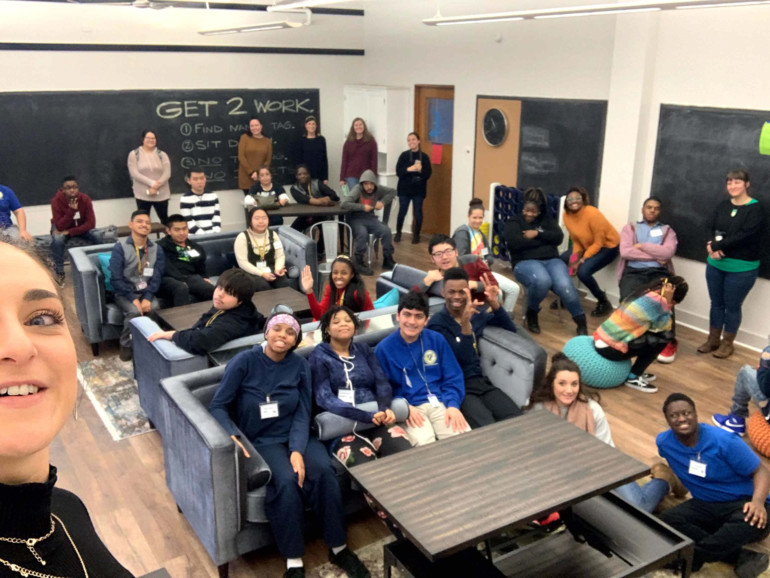In 2011, Julie and Michael Tracy’s high-school-age son John, who has autism, experienced a severe mental health crisis that required hospitalization.
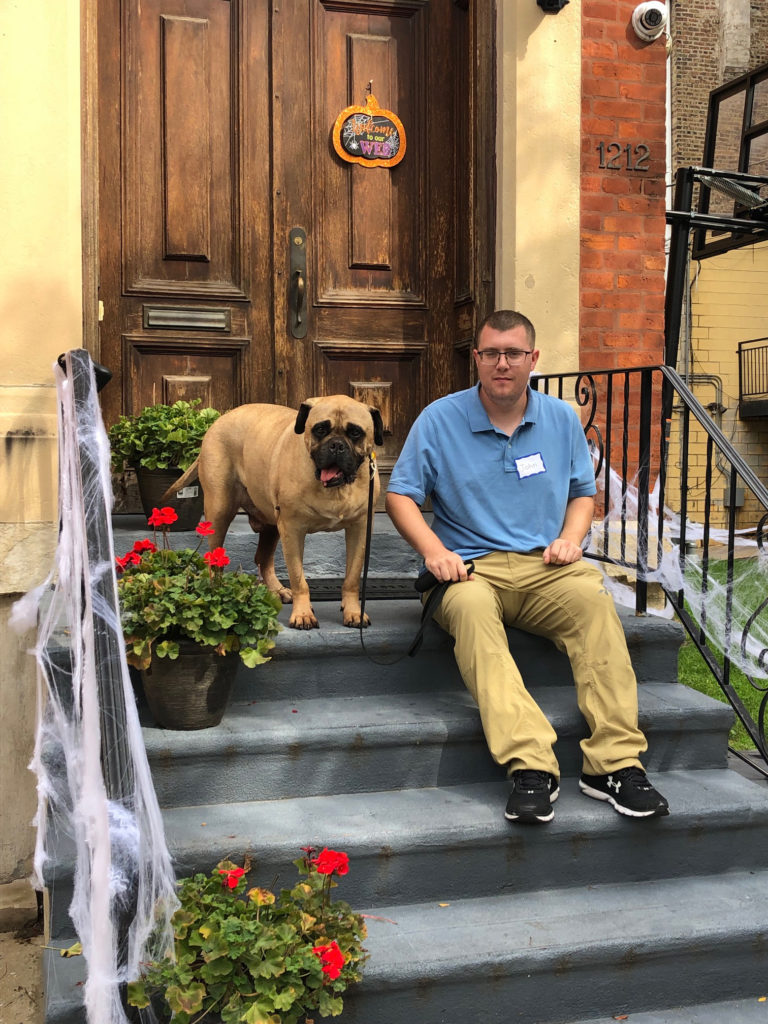
Looking ahead, the Tracys knew John needed support making the transition to adulthood, and they began a nationwide search for programs with residential, social and vocational opportunities. Not finding exactly what they wanted, they decided to create their own community. “We knew it couldn’t just be for John,” says Julie Tracy, “but for others like him.”
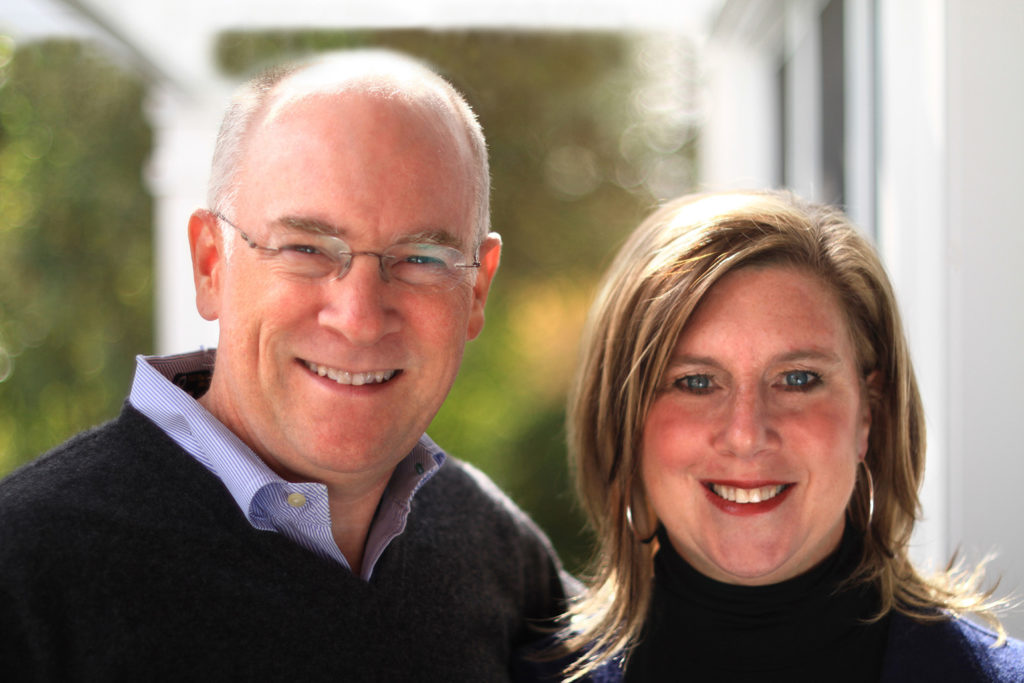
What started as a small program in the Little Italy neighborhood of Chicago quickly grew into Urban Autism Solutions, which will celebrate its 10th anniversary this summer.
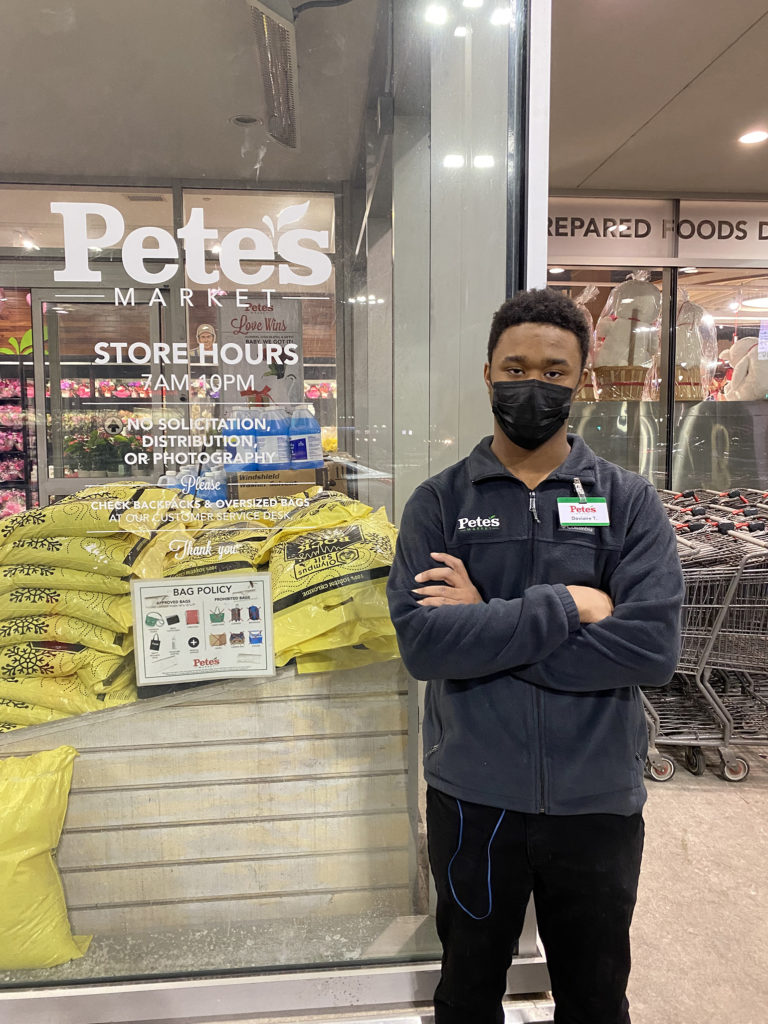
UAS provides residential, social and vocational programs for young adults ages 16 to 35 years old with autism and related challenges. “UAS focuses on the transition to adulthood when our young adults struggle to make social connections and gain the skills they need to lead more independent lives,” says Heather M. Tarczan, executive director of Urban Autism Solutions.
UAS’ signature program is Growing Solutions Farm, a 1.2-acre produce farm on Chicago’s West Side. Here, transition students from West Side Chicago public high schools learn about urban agriculture and develop transferable job skills. The farm sells produce through its weekly farm stands to restaurants and wholesalers, a CSA subscription, and provides paid employment for up to 30 students each summer. Twenty percent of the harvest is donated to West Side food banks and to students who work at the farm, most of whom come from households with incomes below the federal poverty level.
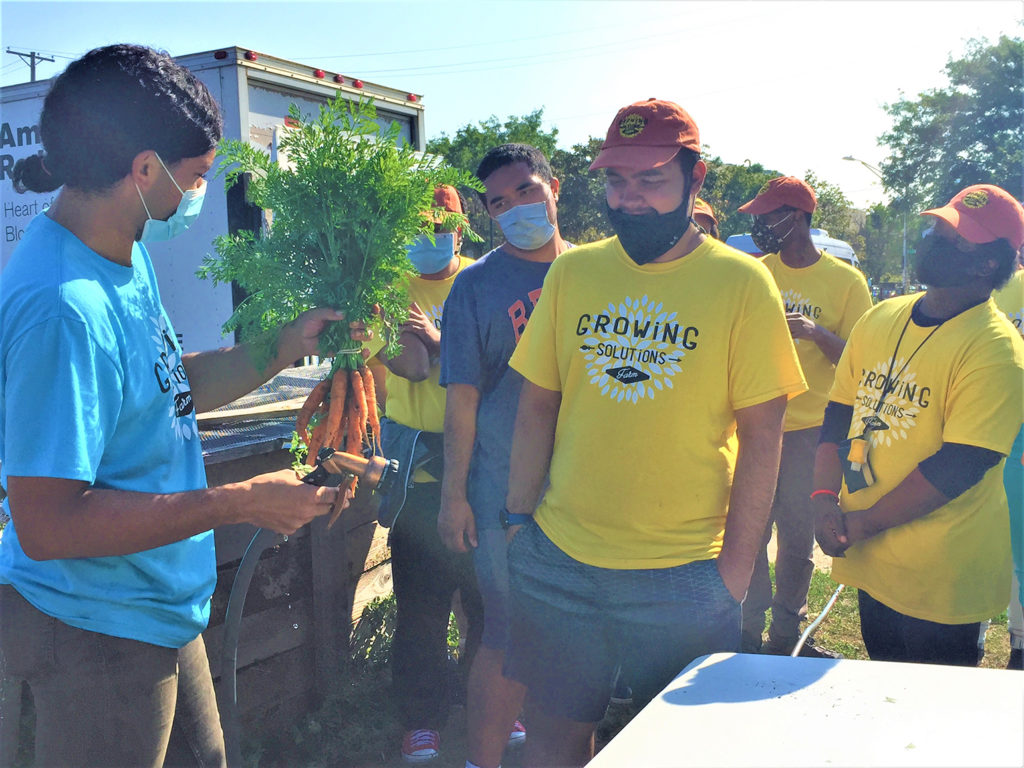
To further meet the demand of the community, in the fall of 2019, the UAS West Side Transition Academy opened. Supplemental services to those offered in West Side transition programs are provided, including speech-language and occupational therapy, social-emotional learning, social services, job internships, travel training, and community immersion opportunities.
Young adults with autism have the lowest rate of employment compared to their peers with other disabilities, with only four out of 10 working in competitive employment in their 20s. While not every student who works with UAS is employment-ready, for those who are, the UAS team identifies employers who are willing to hire young adults with autism and related challenges, and then works with students to prepare their resumes, submit applications and provide on-the-job support. Through a donation from Lyft, students can get free rides to and from work, eliminating one of the most common barriers to employment for this population.
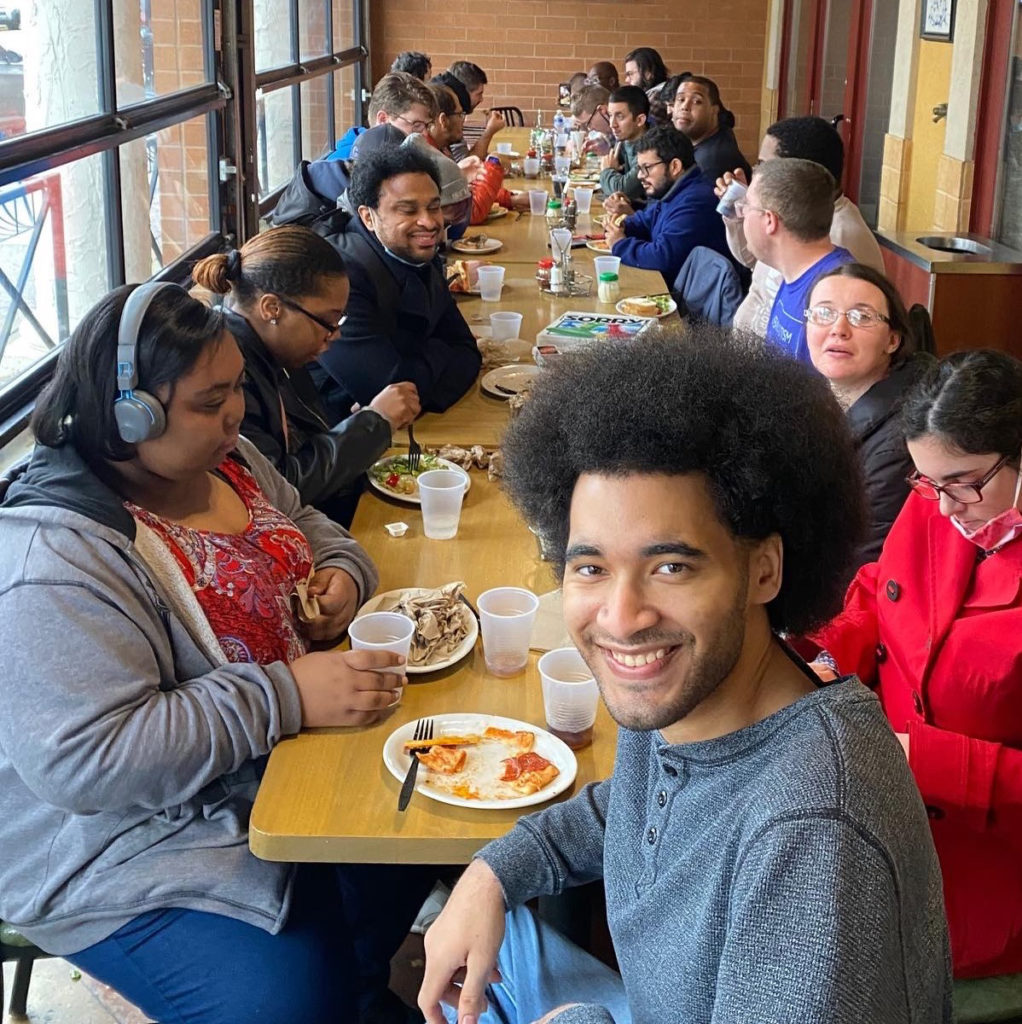
Research indicates that approximately one in four young adults with autism has not seen or talked with friends or been invited to social activities in the past year. UAS provides a lifeline to young adults with autism from as far away as Dixon and Northwest Indiana, who want to make friends through its monthly meetup. Other UAS social opportunities include weekly hikes and other events.
“UAS has served more than 1,000 transition-age students and young adults,” says Tarczan. “The difference we make in the lives of our program participants is tangible. Participants obtain jobs in competitive environments, explore the city, make big strides in their communication skills, and get their hands dirty and grow food. And, they have a lot of fun, and so do we. Our goal is to expand our programming to reach even more young adults through our results-driven programs.”
